This viewpoint is part of Foresight Africa 2024.
General elections can offer Africans the opportunity to strengthen their governance frameworks. However, as coups in Niger and Gabon in 2023 have shown, without a governing process characterized by fidelity and adherence to the rule of law, elections are not likely to function effectively as instruments for institutionalizing and consolidating democracy. President Mohamed Bazoum came to power in Niger in 2021 through democratic elections, and his subsequent inauguration as president represented the first peaceful transfer of power in Niger since independence in 1960. This represented an important contribution to the deepening and institutionalization of Niger’s democracy. However, Bazoum was ousted—not by democratic elections, but by a military coup in July 2023.
Recent coups in Chad, Burkina Faso, Gabon, Guinea, and Sudan do not augur well for strengthening democracy generally and improving democratic institutions in particular in these countries. Hence, while elections are an important mechanism for deepening and institutionalizing democracy, they can only do so where countries have a competent and balanced governing process, one that is characterized or undergirded by the rule of law and minimizes unconstitutional change of government. First, in order for elections to serve as a foundation for building viable and sustainable democratic institutions, they must be regular, fair, free, and credible.
Second, citizens must be granted other rights. These include the right to freely organize political parties and participate in elections, the right to a fair trial and due process, the right to seek redress or a legal remedy, freedom of speech, and freedom of assembly and of association, etc. In countries where citizens enjoy these rights, the government is more likely to be responsive to the preferences of citizens, there are effective legal mechanisms (e.g., an independent judiciary) for citizens to seek relief for their grievances, putschists are subject to severe penalties, and government impunity is minimized.
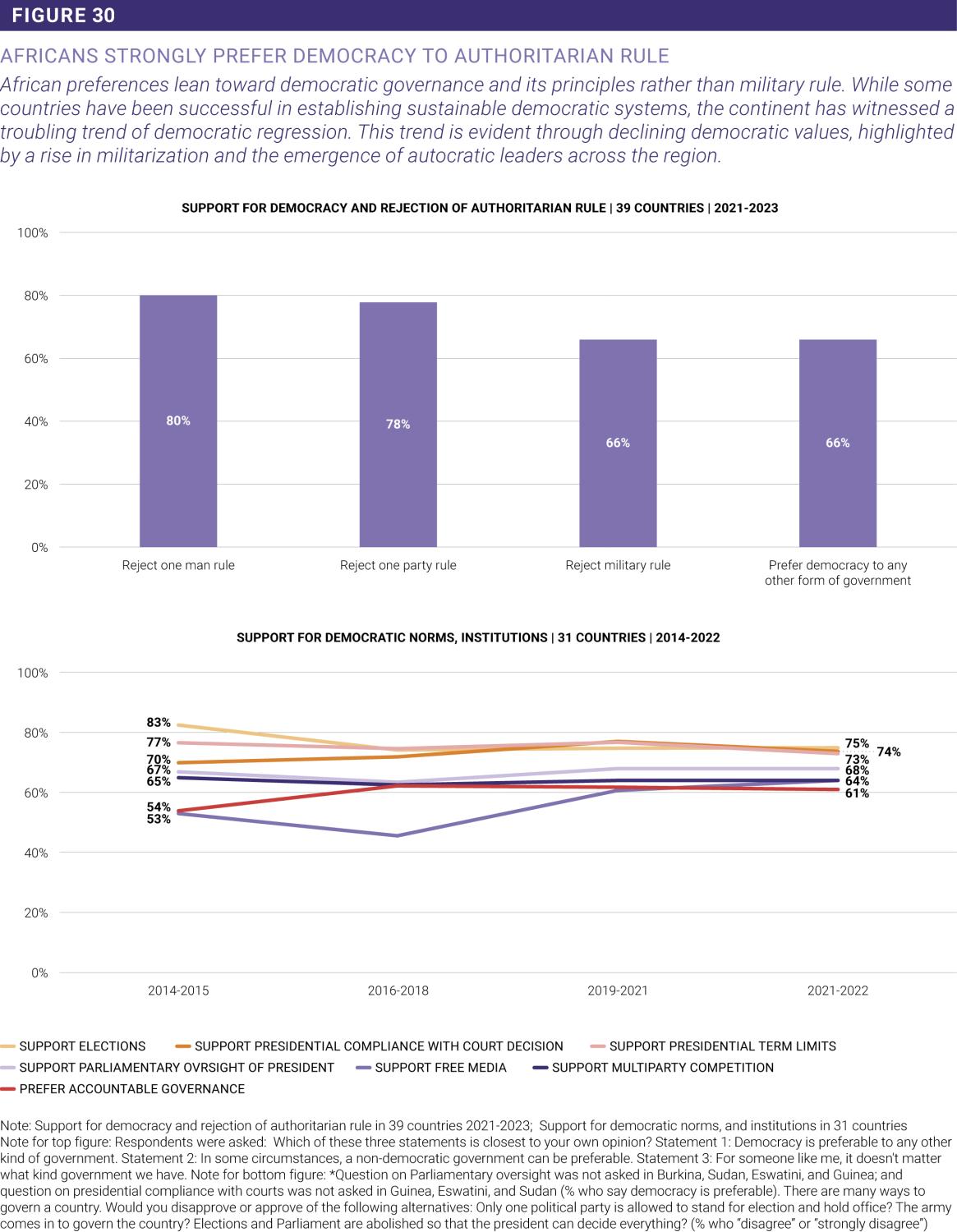
Priorities for the declared winners of 2023 elections
Liberia
Liberia held its presidential election on October 10, 2023. Because neither the incumbent, George Weah, nor his opponent, Joseph Boakai, captured the 50% majority needed for victory in the first round, they were forced into a runoff on November 14. Three days later, Weah conceded defeat to Boakai, ending “a presidency marred by graft allegations but helping to ensure a smooth transition of power in the once volatile African nation.”
The new president pledged to upgrade the country’s crumbling infrastructure, invest in the agricultural sector, fight the influx of illicit drugs and extreme poverty, and improve the people’s trust in the government.
Gabon
After an election considered fraudulent by the international community, plagued with irregularities, and denounced by the opposition, incumbent Ali Bongo was reelected to a third term as president of Gabon on August 26, 2023.13 A few days later, soldiers declared on television that they had cancelled the results of the election, dissolved state institutions, and that Gen. Brice O. Nguema had emerged as the country’s new leader. Although coups contribute to “democratic backsliding,” that hardly applies to Gabon, which has never held a free and fair election since independence in 1960. The coup effectively terminated almost 60 years of the Bongo dynastic rule.
France condemned the unconstitutional change of government and called for the results of the August 2023 election to be respected. However, Paris did not admit to its role in perpetuating corrupt, self-dealing, and political dynasties in its former colonies, including Bongo’s in Gabon, through the so-called Francafrique policy. As in Gabon, these highly corrupt regimes have frustrated the development of effective and sustainable democratic institutions in their respective countries. Although Gabon is a resource-rich country, more than one-third of the population lives in extreme poverty due to significant inequalities in income and wealth distribution. The Bongo family and its friends, however, have amassed large fortunes for themselves.
Gabon’s coup makers claimed that they were responding to “severe institutional, political, economic, and social crisis,” implying that these soldiers would be able to remedy this political and economic dysfunction and deepen and strengthen the country’s democratic institutions. Yet, Nguema, the one chosen to lead the junta, has surrounded himself with “heavyweights” from the ancien régime who were close to the Bongos. The dilemma faced by Gabon and its supporters is that coups rarely ever lead to effective democratic transformations. On the other hand, democracy under the Bongos had been a farce, with the Bongos manipulating the country’s laws and institutions to enrich themselves and stay in power indefinitely. For example, Ali Bongo changed the constitution in 2023 to render himself eligible to remain in power indefinitely. It is no wonder that thousands of young Gabonese actually celebrated Mr. Bongo’s unconstitutional ouster.
Zimbabwe
In general elections held on August 23 and 24, 2023, Zimbabwe’s incumbent president, Emmerson Mnangagwa of the ZANU-PF party, was reelected with 52.6% of the vote to 44.03% amassed by his main opponent, Nelson Chamisa. The opposition refused to accept the results, accusing the incumbent of “rigging and voter suppression.” The new government represents a continuation of the ZANUPF regime, whose “43-year rule has been battered by its disastrous management of the economy and charges of authoritarianism” and which has been accused by Professor Stephen Chan of SOAS (London) of turning the country into “an economic wasteland, . . . with world-record hyper-inflation.”
Hyperinflation has returned to Zimbabwe, the country continues to suffer from “a litany of failed economic policies,” and significant levels of corruption. Given that Mnangagwa won reelection through an election that was considered by various domestic, regional, and international observers as neither free nor fair and carried out in a climate of fear, it is not likely that this regime will contribute to the deepening and institutionalization of democracy in Zimbabwe.
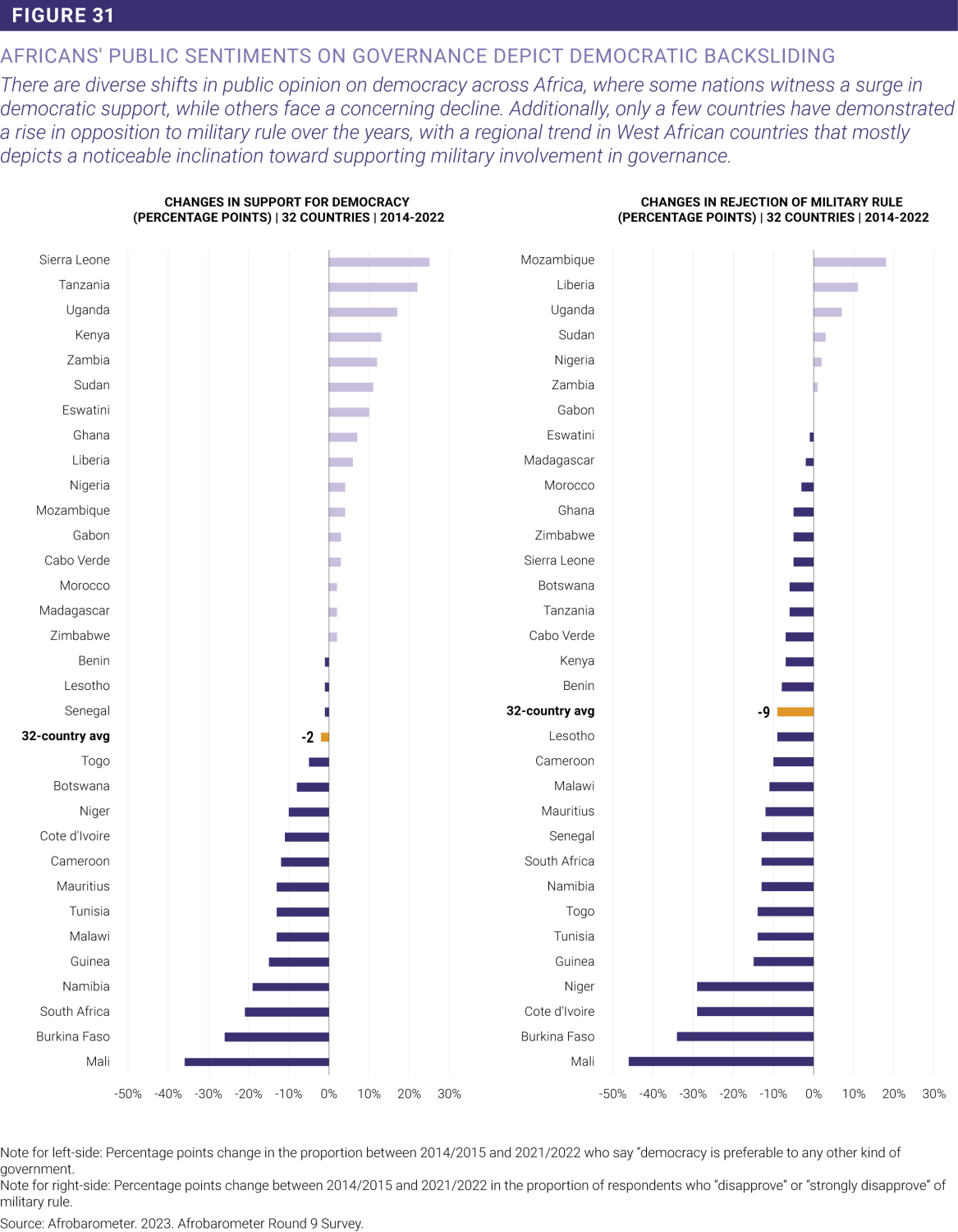
Key elections to watch in 2024
Since it took office in 1994, the African National Congress (ANC) has not been able to improve living conditions for a majority of South Africans by providing them with “adequate housing, water, and electricity.” Frequent power outages, high youth unemployment, rising food inflation, various corruption scandals, an economy considered the most unequal in the world, and a failing land reform effort, are major challenges to the ANC’s political survival. Top challengers to the ANC in 2024 will be the Democratic Alliance (DA), and the Economic Freedom Fighters (EFF), which is appealing to former president Jacob Zuma’s supporters and many disenfranchised and disaffected voters, many of whom feel ignored and neglected by the ANC government. The 2024 elections could prove very competitive, effectively strengthening the country’s democracy.
In Botswana, social stability is threatened by inflationary pressures, relatively high structural unemployment, especially among young urban residents, and income inequality. In the 2024 elections, the ruling Botswana Democratic Party (BDP) will face opposition from the Umbrella for Democratic Change (UDC), which is an alliance of center-left political parties. However, “the fractured nature of opposition parties” augurs well for the BDP, which is likely to retain its legislative majority in the 2024 elections. Nevertheless, threats to incumbent President Mokgweetsi Masisi’s reelection have increased significantly since former president Ian Khama indicated his opposition to Masisi’s reelection efforts. The power struggle between Khama and Masisi could interfere with serious debate on important policy issues. However, if debate is focused on structural unemployment and how to diversify the economy, that could clarify choices for voters in 2024 and strengthen Botswana’s democracy.
Afrobarometer surveys show that most Ghanaians support elections as an effective way to choose their representatives and 80% of them believe that elections offer them a way to remove “unrepresentative leaders from office.” Although partisanship continues to color how voters judge whether elections are fair and free, Afrobarometer determined that as Ghanaians head into 2024, there is “strong support for elections as well as a belief in the efficacy of elections.”
Ghana’s 2023 by-elections were peaceful, with the national police providing effective security to minimize interference by party vigilantes, which has often led to violence. This augurs well for the 2024 general elections in which the top competitors will be the ruling New Patriotic Party (NPP) and its main opposition, the National Democratic Congress (NDC).
Although Ghana faces many economic and political challenges, it remains “a stable, democratic country with a history of successful transitions, a free press, an active civil society, and an independent judiciary.” Regardless of which party wins, the 2024 elections should strengthen the country’s democratic institutions.
While elections are an important mechanism for deepening and institutionalizing democracy, they can only do so where countries have a competent and balanced governing process.
The importance of fair, free, credible, and regular elections to governance in Africa
Elections are very important for deepening and entrenching democracy. They also help a country strengthen its governance institutions and provide citizens with the opportunity to check the exercise of government power as well as contribute to nation-building. Through elections, citizens can participate in the development of the national agenda, choose those who represent them in government, and discipline recalcitrant and poorly-performing political elites by denying them votes at the polls.
An important lesson from African elections in 2023 is that while they are critical for institutionalizing democracy, they can only do so if they are carried out within governing processes that are undergirded by the rule of law. Most importantly, Africa’s political and military elites must understand that unconstitutional changes of government, such as military coups, are antithetical to the strengthening of democratic institutions and the development and sustaining of a democratic culture.
Despite the frequent reports of democratic backsliding in West and Central Africa, democracy remains robust, viable, and strong in several countries in the continent. Elections in general and the 2024 elections in particular can be used to strengthen and deepen democracy in these countries.

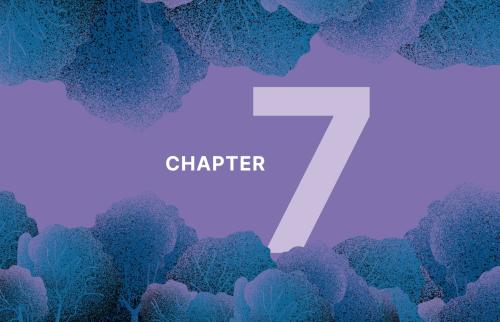
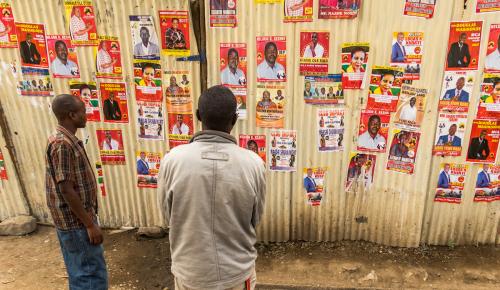
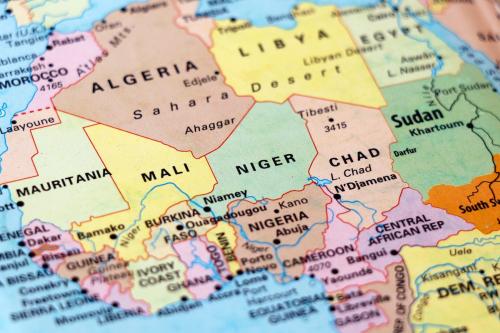
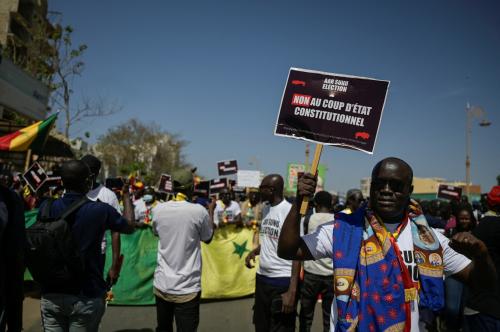
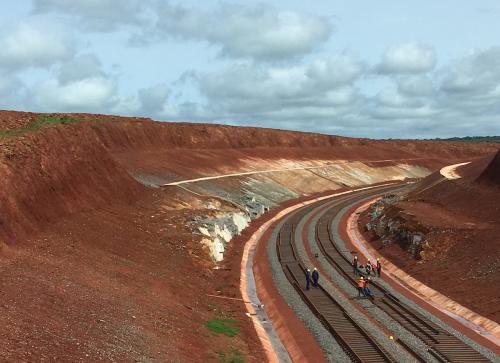

Commentary
Elections and the state of democracy in Africa
June 20, 2024